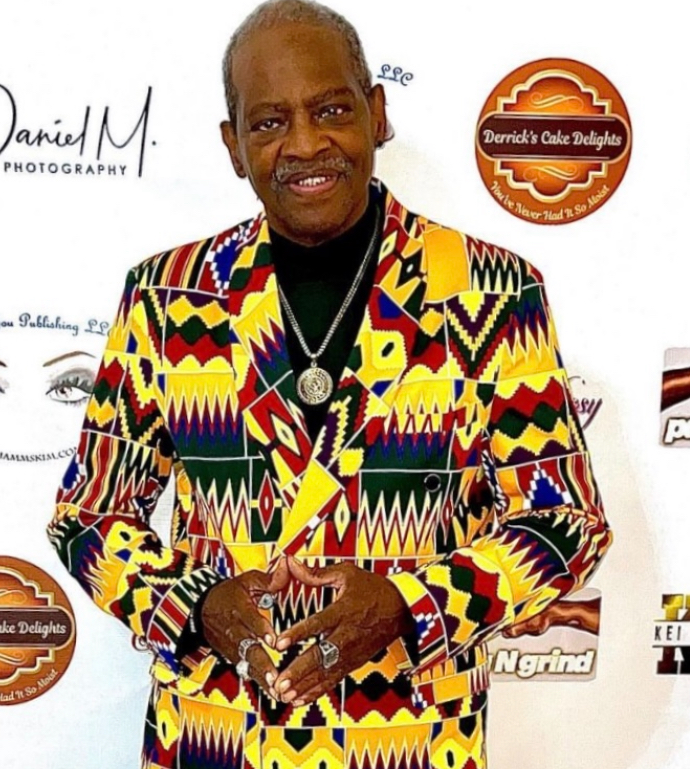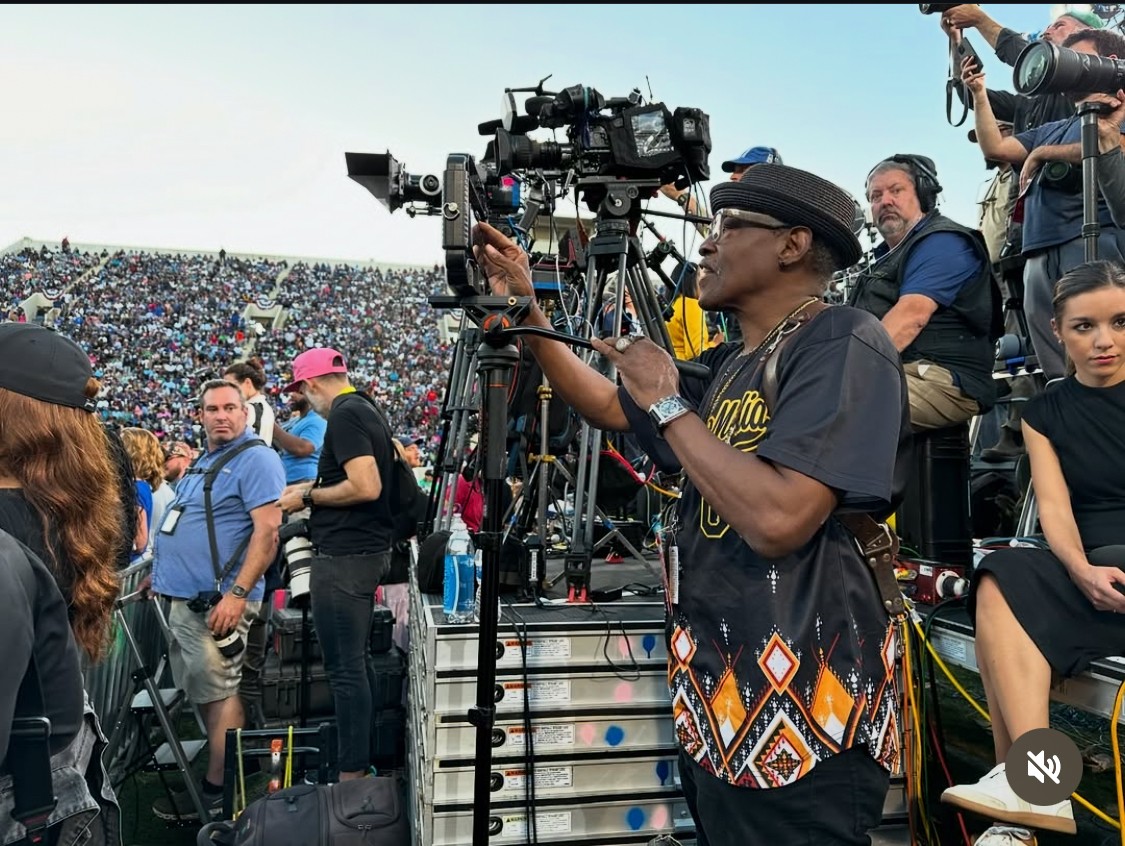

We’re looking forward to introducing you to Jerome Dorn. Check out our conversation below.
Jerome, so good to connect and we’re excited to share your story and insights with our audience. There’s a ton to learn from your story, but let’s start with a warm up before we get into the heart of the interview. Are you walking a path—or wandering?
“I’m walking a path—one that’s been shaped by purpose, pain, and a whole lot of prayer. There was a time when life felt like wandering, especially after moments of deep loss and detours I didn’t see coming. But through each trial, I discovered pieces of my calling—whether it was through my service in the military, my years in law enforcement, or the healing that came through poetry and storytelling.
Now, every step I take is intentional. I’m not just moving—I’m being guided. I’m walking a path that not only honors where I’ve come from but clears space for those coming behind me. Wandering may look like movement, but walking a path means you’re listening, learning, and leading. And that’s what I’m here to do.”
Can you briefly introduce yourself and share what makes you or your brand unique?
Dr. Jerome Dorn:
I’m Dr. Jerome Dorn—author, poet, veteran, and storyteller. My journey has taken me from military service and law enforcement to diving deep into the world of emotional healing, creativity, and personal transformation. I use my life experiences—both painful and powerful—to inspire others through spoken word, books, film, and community leadership.
My brand stands at the intersection of resilience and revelation. It’s not just about surviving hardship, but turning those hardships into hope for others. My recent projects include Poetry of Trials and Tribulations, a deeply personal collection that reflects on life’s detours and divine direction, and a powerful upcoming short film that explores emotional unraveling through the lens of AI and therapy.
What makes my story unique is that I’ve lived through the shadows and found purpose in the process. I’m committed to helping others do the same—whether it’s through words, images, or meaningful conversations. Every project I touch is about healing, elevating, and telling stories that matter.
Thanks for sharing that. Would love to go back in time and hear about how your past might have impacted who you are today. What’s a moment that really shaped how you see the world?
The moment that really shaped how I see the world wasn’t just one event—it was a combination of serving in the military, working in law enforcement, and eventually transitioning into media.
In the military, I learned discipline, structure, and what it means to serve something bigger than yourself. In law enforcement, I saw humanity at its rawest—both the brokenness and the beauty. I witnessed how trauma and injustice affect people, but I also saw resilience, strength, and the power of community.
And then stepping into media, I found a new way to tell those stories—through the lens of healing, empowerment, and truth. That shift gave me perspective. I realized I wasn’t just here to enforce order—I was here to inspire change.
All of those chapters taught me that life isn’t black and white—it’s complex, emotional, and deeply spiritual. Now, I use my platform to amplify voices, spark transformation, and bring light into spaces where darkness once lived. That’s the lens I see the world through today.
What did suffering teach you that success never could?
Suffering teaches you what success never could—who you really are when there’s nothing left to prove.
Success can validate your talent, but suffering reveals your character. It strips away ego, titles, and applause and shows you what truly matters: faith, resilience, empathy, and purpose. In my own life—through the battlefield, the badge, and personal loss—suffering became the classroom where I learned the most valuable lessons.
It taught me how to stand when everything around me was falling apart. It taught me to hear God’s voice in silence, to find strength in surrender, and to lead from a place of humility instead of pride.
Success may open doors, but suffering builds the foundation that keeps you standing once you walk through them.
Next, maybe we can discuss some of your foundational philosophies and views? How do you differentiate between fads and real foundational shifts?
A fad is loud, fast, and often driven by hype. It demands attention but rarely leaves a legacy. Foundational shifts, on the other hand, are quiet at first. They’re rooted in truth, purpose, and longevity. They don’t just follow trends—they change how we think, how we live, and how we lead.
My background in the military and law enforcement taught me to observe patterns, not just reactions. Media sharpened that even more. I watch how something moves: does it create conversation or real transformation? Does it entertain, or does it elevate?
Foundational shifts are uncomfortable because they challenge the status quo. They don’t fade—they force us to grow. That’s how I know the difference. I don’t follow what’s popular—I follow what’s lasting.
Okay, we’ve made it essentially to the end. One last question before you go. When do you feel most at peace?
I feel most at peace when I’m walking fully in my purpose—creating, serving, and inspiring through the gifts God gave me. Whether I’m writing a poem, mentoring someone through their pain, or behind the scenes crafting a message that moves people, that’s when my soul is settled.
Peace, for me, isn’t found in silence—it’s found in alignment. When my experiences in the military, law enforcement, and media all come together to uplift others, that’s when I know I’m exactly where I’m supposed to be.
It’s not about having a perfect life—it’s about knowing that even through storms, I’m being used for something greater. That’s real peace.

Image Credits
InDaHouseMedia Photo













